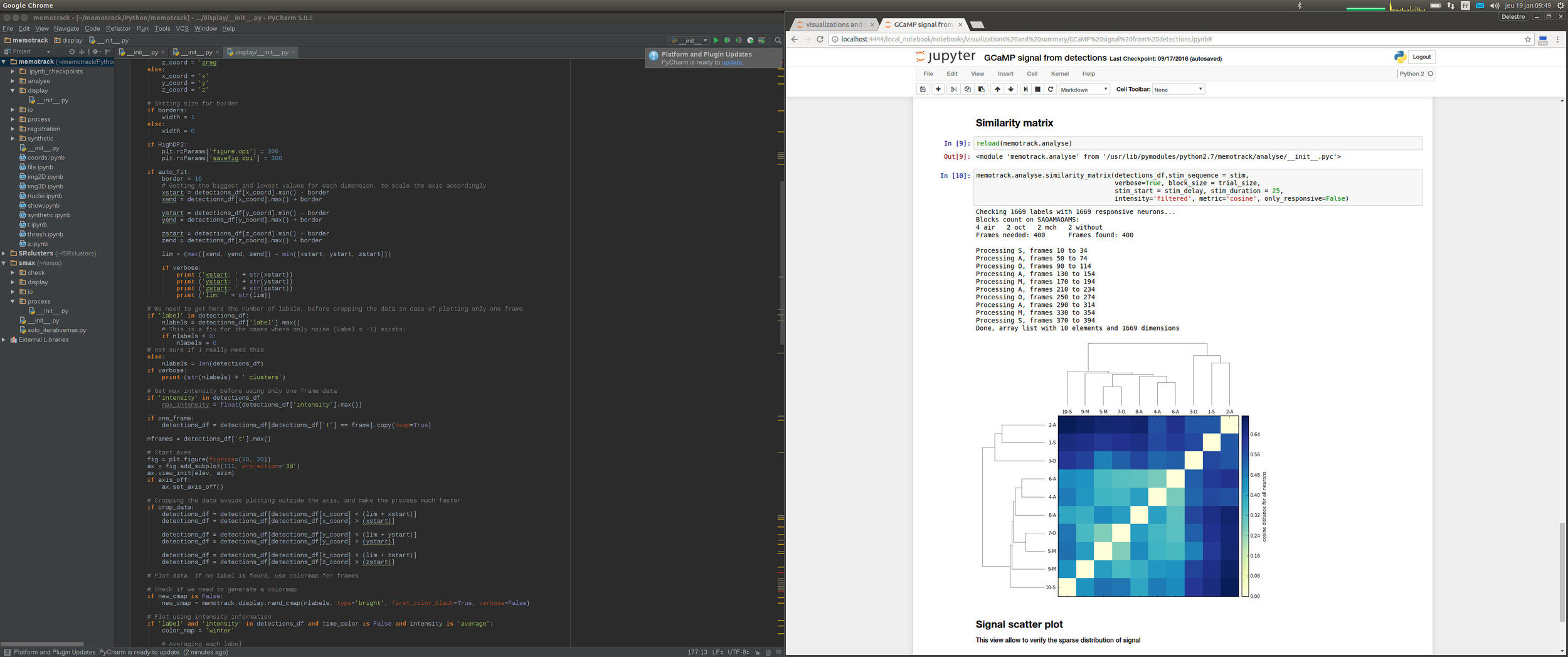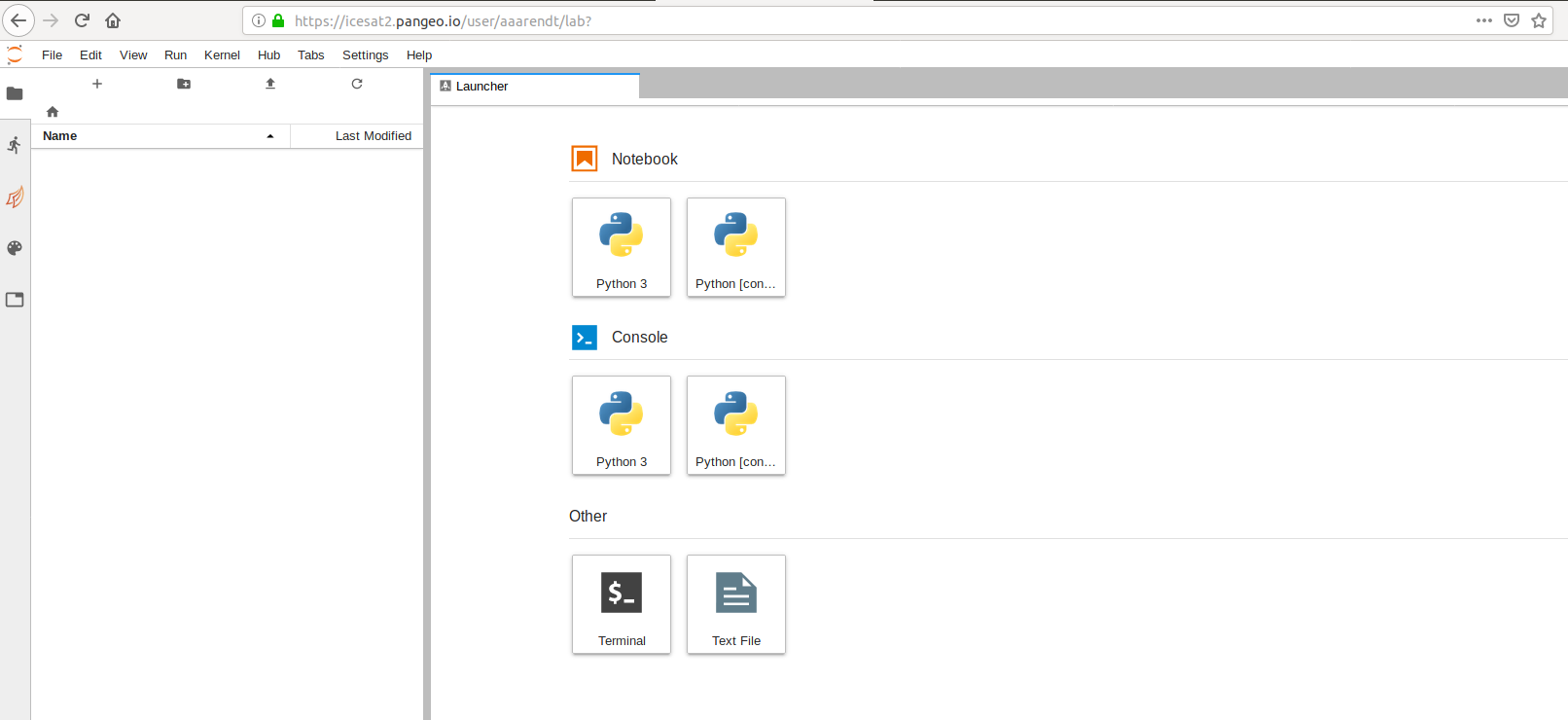

If you are using Jupyter Notebook, on the New menu, select one of your installed IDEs. Open your Jupyter environment by starting jupyter notebook or lab # For Jupyter Notebook Upon successful installation of jupyter-projector-proxy, your Jupyter environment should present options to launch your installed IDE.
#Jupyterlab pycharm install#
To install the extension, use the following command: jupyter labextension install From Sources git clone You should then install jupyterlab-server-proxy JupyterLab extension. If you want to use this integration with JupyterLab®, ensure that you have JupyterLab installed on your machine by running the following command: python -m pip install jupyterlab python -m pip install jupyter-projector-proxy This repository can be installed directly from the Python Package Index. Pycharm (professional,community,educational).IntelliJ idea (ultimate,community,educational).Pycharm educational → pycharm-educational.
#Jupyterlab pycharm professional#
Pycharm professional → pycharm-professional.IntelliJ educational → intellij-idea-educational.IntelliJ community → intellij-idea-community.Intellij idea ultimate → intellij-idea-ultimate.Only when you are installing multiple editions of the same product (for example IntelliJ idea ultimate and IntelliJ idea educational at the same time), you need to be explicit about the name instead of using the generic name idea or pycharm

# Make The idea.properties editable # If the user you use to start jupyter/jupyterlab/jupyter hub is named tiadenĬhown tiaden /opt/pycharm/bin/idea.properties | tar -C /opt/pycharm -strip-components 1 -xzvf. Pycharm community edition example: # As root or superuser # Install Pycharm Community Ln -s /opt/idea/bin/idea.sh /usr/bin/intellij-idea-ultimate # Create a symbolic link in PATH that points to the Intellij startup script. # Make The idea.properties editable # If the user you use to start jupyter/jupyter lab/ jupyter hub is named tiadenĬhown tiaden /opt/idea/bin/idea.properties | tar -C /opt/idea -strip-components 1 -xzvf. IntelliJ ultimate installation example: # As root or superuser # Install IntelliJ IDEA UltimateĬurl -L " latest&distribution=linux" \ Make sure that you replace with the name of the IDE in lowercase and provide its corresponding. # Add a binary to the PATH that points to the IDE startup script. # Make The idea.properties editable by the user that has started jupyter/jupyterlab/jupyterhub | tar -C /opt/ -strip-components 1 -xzvf. Generic installation example: # Install IDEs as root or superuserĬurl -L "&latest&distribution=linux" \ For example, if you are installing Pycharm community edition and Pycharm Professional, use the option 1. Use this option if you are not installing multiples editions of the same product. Install the IDE in standard locations /opt/.

The installed IDEs can be discovered by this package by using one of the following options:Ĭreate a link in the PATH that points to the installed jetbrains IDEs using the appropriate IDE name # Add a binary to the PATH that points to the IDE startup script.IDE_HOME is the location where you installed your desired jetbrains IDE The idea.properties located at IDE_HOME/bin is writable by the user that has started jupyter/jupyterlab/jupyterhub.See installation examples below.Īfter installing the desired intelliJ product, make sure that: Install at least one of the supported Jetbrains IDEs. If not already installed, install system packages required for JetBrains-in-a-browser supportĮxample (ubuntu): # Install as root or superuserĭEBIAN_FRONTEND= "noninteractive" apt-get install -y \ See Requirements from projector-installer See Requirements from jupyter-server-proxy This package has the same requirements as its dependencies:

To report any issues or suggestions, see the Feedback section. NOTE: This package currently, does not provide a kernel level integration with Jupyter. Provides infrastructure to launch any Jetbrains IDEs and connect to it from a web browser.Įxtends Jupyter environments to launch any Jetbrains IDEs as an external process alongside the notebook server. Jupyter-projector-proxy is a Python® package based on the following packages. The Projector Integration for Jupyter enables you to access supported Jetbrains IDEs in a web browser from your Jupyter environment.


 0 kommentar(er)
0 kommentar(er)
